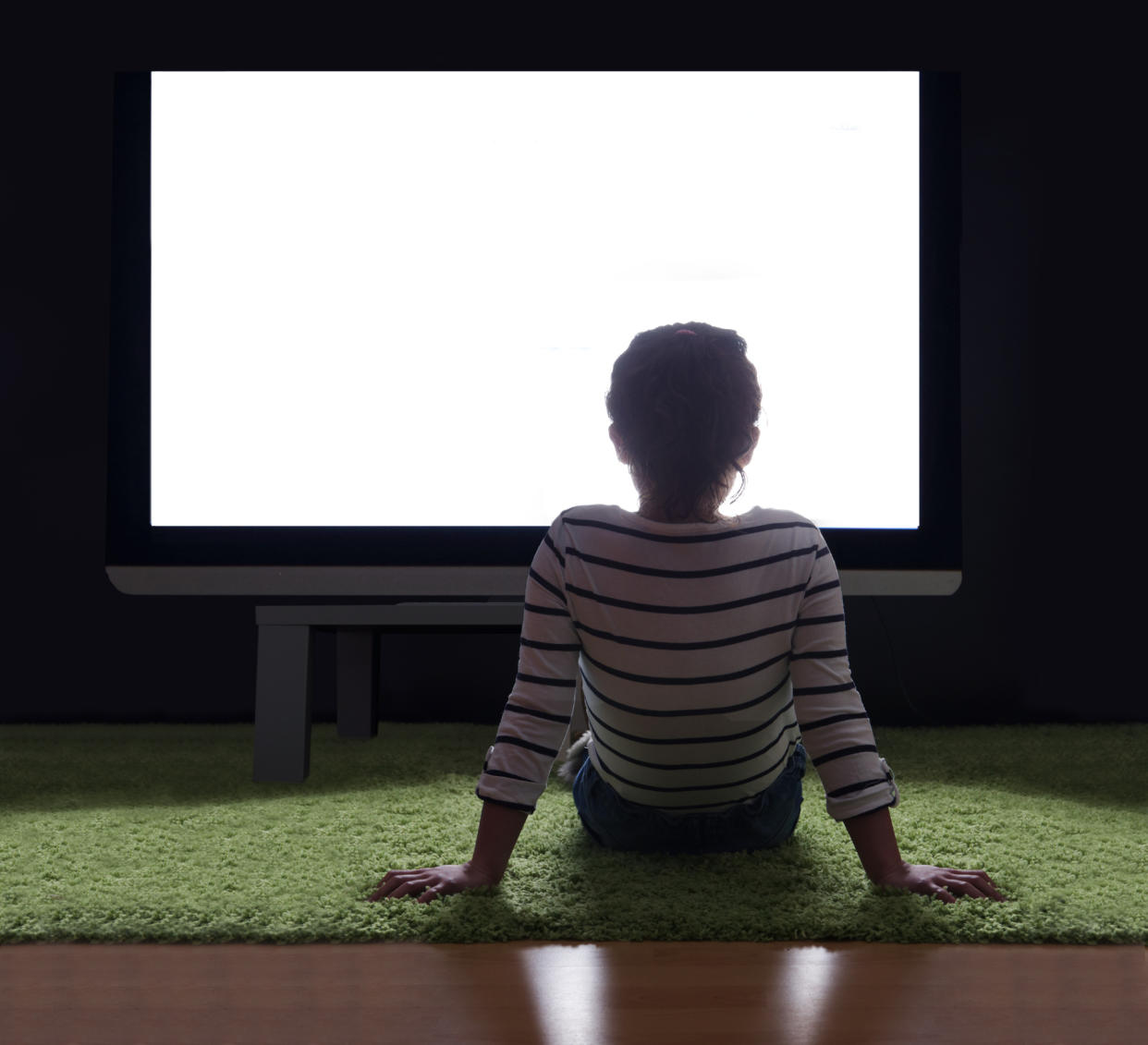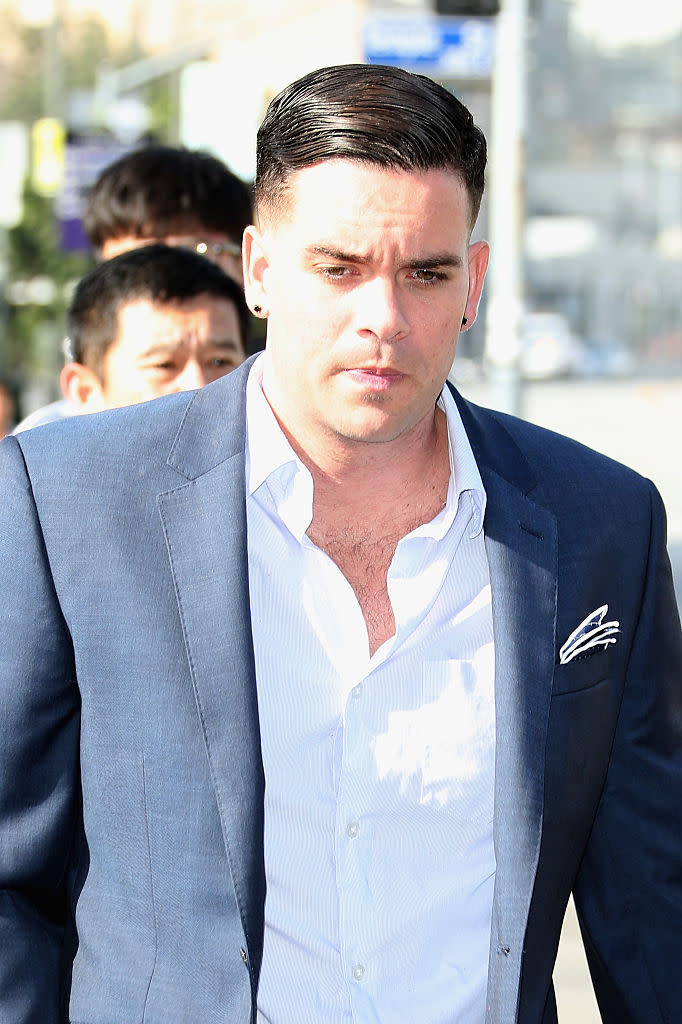Mark Salling suicide: How will I explain it to my daughter, a 9-year-old 'Glee' fan?

When news broke this week that former Glee star turned child-porn convict Mark Salling had killed himself, the Twitterverse exploded with a range of reactions, from sadness and sympathy to joyous satisfaction and then, from co-stars, empathic protection.
But my first thought was this: How will I break it to my daughter?
She’s 9, and a huge Glee fan ever since Christmas, when we began watching the series together starting from Season 1, and falling in love with all the quirky characters and perfectly saccharine duets and out-of-the-box story lines.
But as edgy, heavy, and occasionally over-her-head as the tackled topics can be — coming out, bullying, teen pregnancy, adoption, divorce, parental death, blended families, you name it — suicide is a subject that has not (at least not yet) been broached. Same goes, of course, for child porn.
So I decided, within five minutes of reading the news of Salling’s death, that I simply wouldn’t tell her. Because even though Salling’s character of Puck — a swaggering, bad-ass Lothario — is not among her favorites (she prefers sweet Kurt and fierce Mercedes), he portrays a sympathetic complexity that’s both angering and lovable, and I didn’t want to distract from the fictional narrative with upsetting, real-life drama. I also had zero desire to discuss suicide, sexual abuse, porn, or any other disturbing topic with my sweet fourth grader.

Still, when we first started watching the show, I had kept mum about the 2013 death of Cory Monteith, who portrayed the beloved jock character Finn. Why did she need to know about this actor’s real-life torment with drugs, I reasoned, and that it eventually killed him? Still, she found out anyway, within days, from a happy-to-inform classmate who had already watched the series in its entirety and knew plenty of offscreen details too.
And while Salling’s death feels different because of its circumstances, the idea of continuing to watch the show with my daughter and not disclosing the truth gnawed at me.
I turned to child and adolescent psychologist Barbara Greenberg for advice, and she basically told me to get real.
“Your daughter, and a lot of other children who are not socially isolated, are going to learn about his death,” she said, using the news of Monteith as a case in point. “I think there’s no way around it. So you’re going to have to bite the bullet and tell her. We want to protect our kids form the painful and harsh realities of life, but you can’t.”
Further, Greenberg says, it’s important to be truthful as parents, noting, “You always have to take the honest route, because if you don’t, then she’s just not going to trust you.” She adds, “You don’t have to volunteer the suicide part, but if she asks, you must be honest. It’s an investment in the long-term health of your relationship.”
In this case, discussing the fact that Salling’s death was a suicide is a “teaching opportunity” that can help your child develop “emotional literacy,” Greenberg says. “This is a time you can help them label feelings and mood states, and explain that, in life, people feel joy and feel sadness and fear and everything else on the spectrum, and that it’s really important to know we not only can but must reach out to people when we’re having feelings that are very hard for us to handle — that it’s a positive thing to ask for help, and not something to be ashamed of.”
Unfortunately, the hard part of the discussion around Salling’s death doesn’t necessarily stop there.
“She’s going to ask why he [killed himself], and this is where it gets even more complicated,” Greenberg says. And that’s where a parent must decide what information to mete out or keep vague, based on your child’s age and desire for details. “You can say you’re not sure, you don’t know him, but it’s an infrequent event … and that unfortunately he was hurting so badly that he probably didn’t see any other way out.”
As a rule of thumb, she adds, “Give your child as much information as they are requesting. But I would suggest you don’t get into the child porn. It isn’t necessary — unless she brings it to you.” And in that case? “You can say, ‘People aren’t all good or all bad, they are complicated.’”
Basically, Greenberg says, “You have to kind of walk some kind of middle ground, because you want to be honest, but you don’t want to overwhelm her, and you know your child best.”
Armed with this advice, and knowing we would be sitting down to watch the next few episodes of Glee together over the weekend, I approached my daughter after school today — waiting until she’d told me about the daily dramas and class updates, and after she’d finished her snack and homework. Then I dove right in.
“So honey, you know Puck on Glee?”
“Yeah,” she said.
“So, it’s really sad, but he died — the actor, in real life.”
“Oh yeah, I know.”
I was stunned, and certain she had him confused with Monteith. “No, not Finn,” I said. “Puck. This just happened yesterday.”
“I know,” she insisted, without emotion. “Mama, I know things.”
And that, as they say, was that.
I’m still glad I was prepared. And yes, I know my child best. But sometimes it’s hard to keep up.
Read more from Yahoo Lifestyle:
New York will be the first state to require mental health education in schools
‘I grew up in a war zone’: Black Lives Matter’s Patrisse Khan-Cullors on racism in America
Follow us on Instagram, Facebook, and Twitter for nonstop inspiration delivered fresh to your feed, every day.

